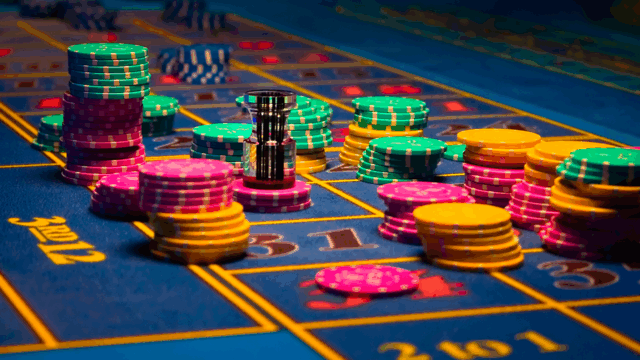ID 2596293© Irochka| Dreamstime.com
Introduction: Thailand’s gambling legalization
Thailand gambling legalization debate has reached a historic turning point as Parliament enters final deliberations on a groundbreaking bill that could authorize five luxury integrated casino resorts across the kingdom. Dubbed the Entertainment Complex Act, this legislation represents the most significant potential shift in Thailand’s entertainment and tourism landscape in decades—a move that could either turbocharge economic growth or exacerbate social problems, depending on who you ask.
The stakes couldn’t be higher: with 40% of Thais admitting to illegal gambling participation (Mahidol University, 2024) and an estimated $5.7 billion annually hemorrhaging to underground bookies and Cambodian border casinos (National Police data), proponents insist regulated casinos would:
✔ Recapture billions in lost revenue through a proposed 30% gross gaming tax
✔ Create 150,000+ high-quality jobs in hospitality, security, and entertainment sectors
✔ Curb organized crime by dismantling illegal betting rings that currently operate with impunity
✔ Boost tourism competitiveness against regional rivals like Singapore and Macau
However, a coalition of health experts, Buddhist leaders, and social activists warns the human cost may outweigh these benefits. They point to alarming data showing Thailand already has 3.2 million problem gamblers (WHO), with addiction-related family breakdowns and loan shark violence plaguing communities nationwide. The proposed 500฿ daily entry fee for locals has drawn particular scrutiny—critics argue it’s too low to deter gambling while being nearly impossible to enforce effectively.
The Economic Case for Thailand Gambling Legalization
1. Projected Windfall: $12B by 2030
The National Economic and Social Development Council (NESDC) estimates integrated resorts could:
- Generate $4.3B/year in taxes (funding healthcare/education)
- Attract 3 million high-spending tourists (Kasikorn Research)
- Boost local businesses near resorts (e.g., Pattaya retail could grow 22%)
Comparisons to Regional Peers:
- Singapore’s 2 casinos contribute 5% of GDP
- Cambodia’s border casinos earn $1.2B/year from Thais alone
2. Cracking Down on Illegal Gambling
Thailand’s illegal betting market is three times larger than Malaysia’s (Interpol, 2024). Legalization could:
-Defund crime syndicates controlling underground lotteries
– Reduce police corruption (25% of gambling busts involve bribes, per Transparency International)
The Opposition’s Argument
1. Addiction and Social Costs
Thailand already has 3.2 million problem gamblers (WHO):
- 28% have borrowed from loan sharks
- 17% have contemplated suicide (Ramathibodi Hospital study)
Predicted Outcomes if Casinos Open:
➔ Addiction rates could rise 40% in 5 years (based on South Korea’s Kangwon Land)
➔ Family debt crises may overwhelm social services
2. Cultural and Religious Resistance
- 200+ Buddhist monks protested at Government House, calling casinos “a moral catastrophe”
- 72% of rural Thais oppose legalization (Suan Dusit Poll)
How the Bill Would Work for Thailand gambling legalization
The proposed law includes:
🔹 5 licenses (Bangkok, Phuket, Chiang Mai, Pattaya, Udon Thani)
🔹 30% tax rate on gross gaming revenue
🔹 Strict local controls:
- 500฿ daily entry fee for Thais
- Facial recognition to block self-excluded gamblers
Lessons From Other Asian Markets
| Country | Annual Revenue | Key Lesson |
|---|---|---|
| Singapore | $6B | Strict enforcement prevents locals from gambling |
| Cambodia | $1.2B | Weak oversight enables money laundering |
| Philippines | $3B | Corruption scandals damaged public trust |
What Happens Next?
- October 2025: Final parliamentary vote
- 2026: First resorts could open (if approved)
- 2027: Independent review of social impacts required
Conclusion: Thailand’s Defining Decision
The gambling legalization debate forces Thailand to choose between:
- Economic pragmatism (jobs, tourism, taxes)
- Social preservation (addiction risks, cultural values)
Critical unanswered questions:
- Can Thailand replicate Singapore’s success while avoiding Cambodia’s failures?
- Will the 500฿ entry fee actually deter locals?
- How will the government police illegal gambling that continues outside resorts?
One thing is certain: this decision will shape Thailand’s future for decades. For ongoing coverage, follow The Nation’s investigative team.
To read more news and follow updates please visit our homepage.














Awesome https://lc.cx/xjXBQT
Awesome https://lc.cx/xjXBQT
Awesome https://lc.cx/xjXBQT
Awesome https://is.gd/N1ikS2
Very good https://is.gd/N1ikS2
Good https://is.gd/N1ikS2
Comments are closed.